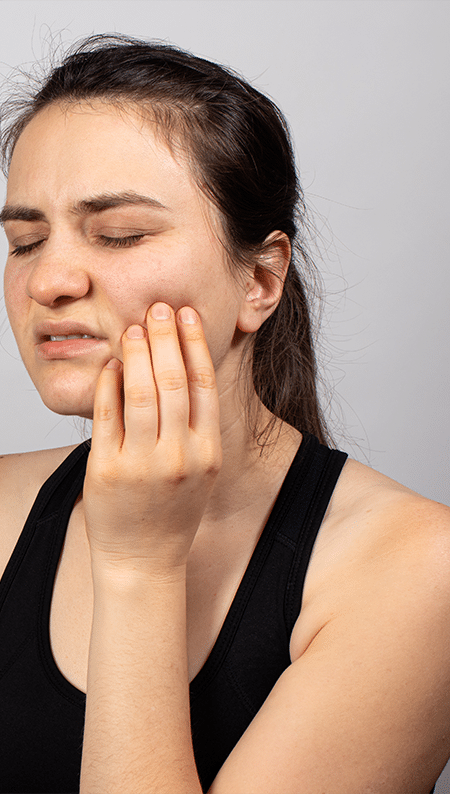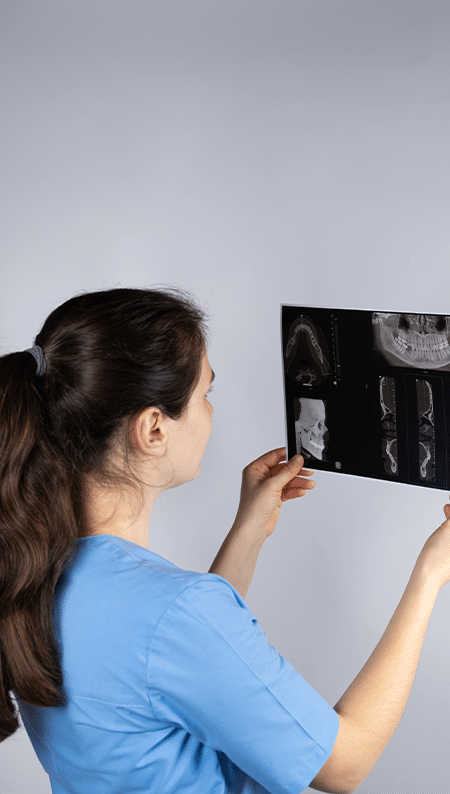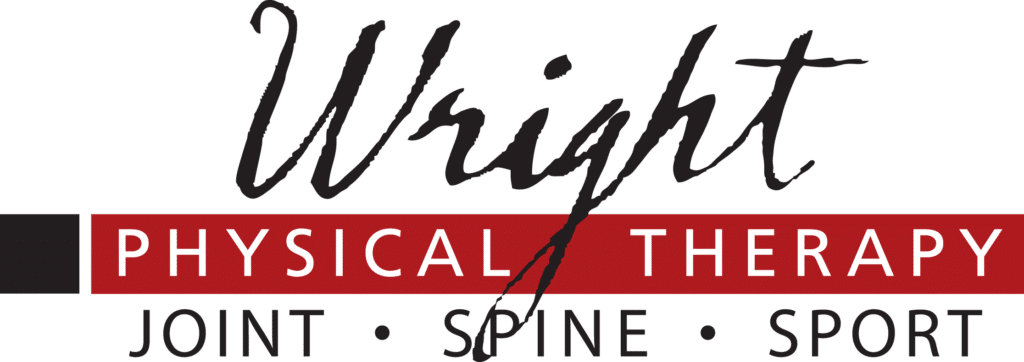TMJ Dysfunction
Temporomandibular joint disorder (TMD) refers to a painful dysfunction of your temporomandibular joint (TMJ). Responsible for opening and closing your jaw, the TMJ consists of the upper temporal bone connected to your skull and the mandible, or lower jawbone.

TMJ Can Make Life Difficult, But Wright Physical Therapy Can Help.
Do you have trouble eating? Does it hurt to yawn? Do you have jaw pain or discomfort that you cannot seem to get rid of? When you open or close your mouth, do you hear a click? If this is the case, you may have TMJ, or “temporomandibular joint disorder.”
What is TMD?
Temporomandibular joint disorder (TMD) refers to a painful dysfunction of your temporomandibular joint (TMJ). Responsible for opening and closing your jaw, the TMJ consists of the upper temporal bone connected to your skull and the mandible, or lower jawbone.
TMD symptoms can vary, ranging from pain in and around the joint while chewing, limited range of motion or locking of the jaw, stiffness of the jaw muscles and pain that radiates into the face and neck. You may also hear a popping or clicking noise when you open or close your mouth.
If you are tired of dealing with the pain of TMJ, call us today to make an appointment with one of our Idaho physical therapists.
Common Causes and Symptoms of TMJ Disorder
35% or more of the population, which represents people of all ages, experience physical signs and symptoms of TMD in their life. However; only about 5% to 10% of those that report symptoms seek out treatment.
Often, the exact cause of temporomandibular disorder is unknown. However, several contributing factors such as occlusal abnormalities (upper and lower teeth touching), orthodontic treatments, poor health, and nutrition can lead to TMJ pain. Pain can result from inflammation, arthritis, trauma to the joint, joint laxity, muscle tightness or trigger points, cervical or thoracic pain, and psychosocial factors such as chronic stress, anxiety, depression, or pain.
Symptoms of TMJ disorder include:
- Headaches
- Sore jaw muscles
- Lockjaw
- Pain in the temples
- Earaches
- Jaw pain
- Pain when eating or chewing
- Jaw popping
Any other medical conditions should be ruled out before diagnosing TMJ, as symptoms could be related to trigeminal neuralgia, salivary gland disease, or even swollen lymph nodes. You may also be referred to an otolaryngologist or dentist specializing in jaw disorders by your doctor. Until your condition is determined, you will be treated based on the severity of your symptoms.
Are you experiencing any of these symptoms? If so, contacting a physical therapist at Wright Physical Therapy is a good idea for pain relief.


What To Expect With PT Treatment for TMJ
Physical therapists at Wright Physical Therapy are skilled in providing TMD therapy to people who are seeking relief from TMJ pain. Our physical therapists are able to characterize the epidemiology of and pathology of the impairment and use an evidence-based system to screen and evaluate for TMD.
At your first appointment with Wright Physical Therapy, a thorough examination of your neck, shoulders, and thoracic spine will be performed to determine whether those structures are causing your symptoms.
Our physical therapist will assess jaw mobility and work to relieve neck and head muscle tightness. Our physical therapy treatments in Idaho are designed to help you regain normal function as well as the proper interaction of your jaw muscles and joints.
Then, based on the complexities of your symptoms and your specific needs, one of our professional physical therapists will create a care plan for you. To successfully treat TMD, our program consists of one or more of the following:
- Flexibility and postural strengthening
- Relaxation and self-management techniques
- Skilled hands on mobilization
- Therapeutic use of ice/heat, ultrasound, iontophoresis and electrical stimulation
TMJ Treatment Could Benefit You
If you are living with symptoms of TMJ dysfunction, it is time to take a stand against your pain. Our physical therapists are patient-centered and committed to your health, and we won’t stop until you are experiencing relief!
Follow Our Health Blog
You have more options than ever for the day-to-day aches and pains. When combined with monitored physical therapy, you can use the tips within our blogs to better understand and alleviate your pain! Wright Physical Therapy continuously uploads content covering various topics to keep you informed and knowledgable. Subscribe today!

